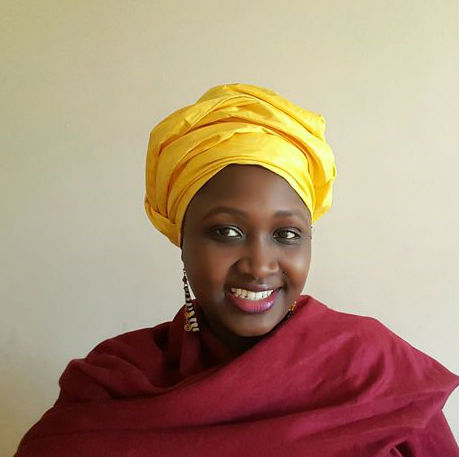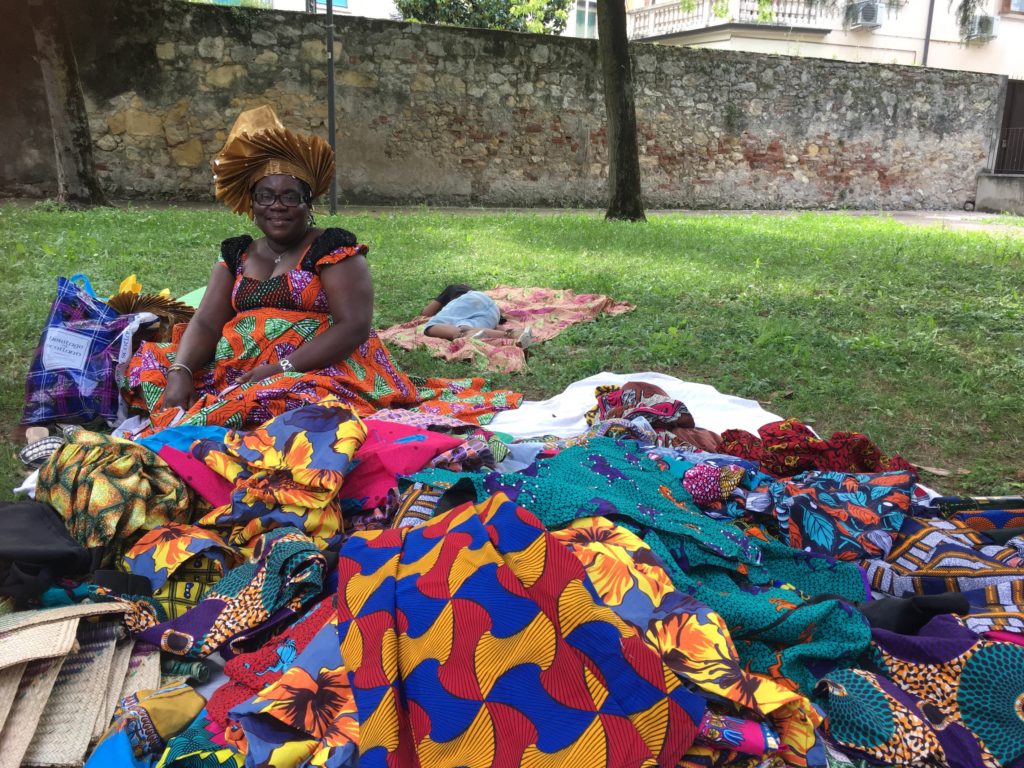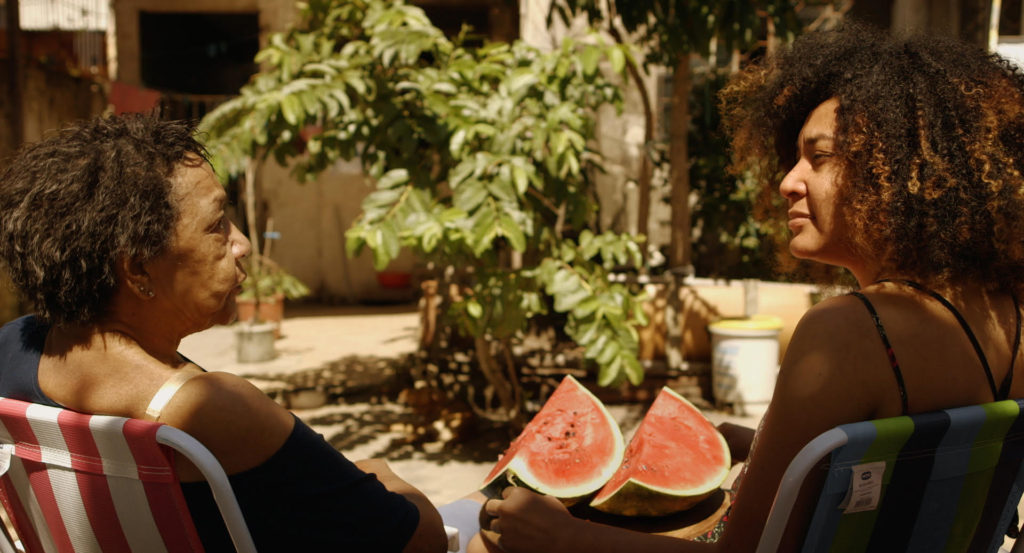by Juliana da Penha
Last year, during the previous Scottish local elections results in May, the news spotlight was on Roza Salih, elected an SNP councillor for the Greater Pollok ward on Glasgow City Council. Roza is the first former refugee elected to Glasgow City Council.
From Southern Kurdistan, Iraq, she arrived in Scotland in 2001 with her parents and a younger sister, seeking asylum after her grandfather and two uncles had been executed for opposing Saddam Hussein’s regime. She was 12 years old.
Since she arrived in Glasgow, her life experiences and hard work transformed a little girl into an experienced human rights activist and politician.
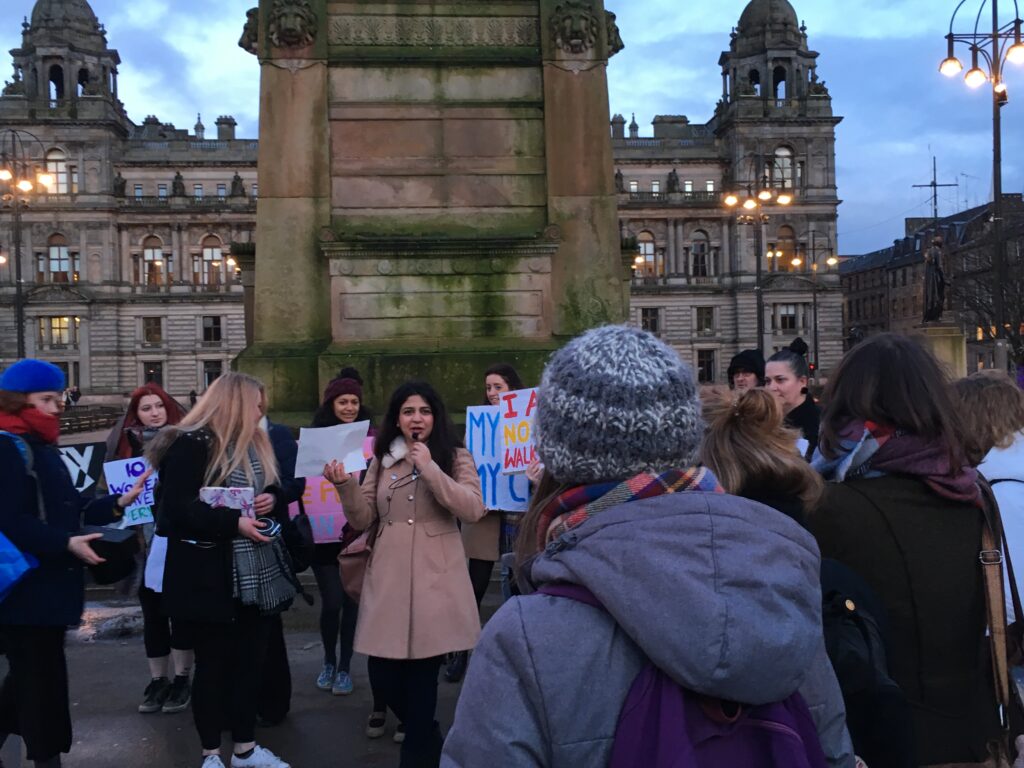
International Women’s Day 2018 in George Square, Glasgow, Scotland. Image source
She started campaigning at 15 years old, as co-founder of the Glasgow Girls with fellow pupils from Drumchapel High School, to stop the UK Border Agency from carrying out dawn raids and detaining and then deporting children, successfully preventing the deportation of their school friend, Agnesa Murselaj, a Roma from Kosovo.
“My passions have always been helping people, standing up for people’s rights, for people who don’t have a voice. I speak up for them and listen to them. That’s what I’ve always been doing, and I will continue doing that. The more people speak up, campaign, and come together as a group; I think it will have a huge impact than one or two people doing it. Glasgow Girls was such a great campaign because it wasn’t one person or two; it was a whole community”, says Roza.
“My passions have always been helping people, standing up for people’s rights, for people who don’t have a voice.
During our phone call, she was at her part-time Case Worker job at Chris Stephen’s office, the SNP MP for Glasgow Southwest. “A councillor is a part-time job; many people don’t know that.”, she explained.
Roza is grateful for the support she had in Glasgow. “The people in Glasgow have supported me and believed in me, which is very encouraging. I don’t know what to say about or explain it but seeing that I have been welcomed and become a politician is reassuring. I hope that my journey as a councillor will be a beacon of light for people.”
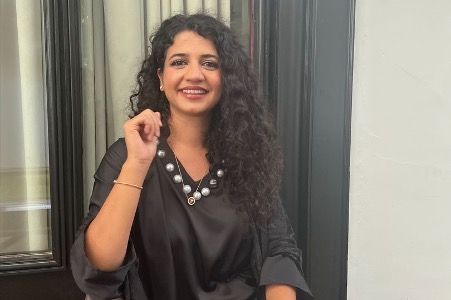
Roza Salih
The main reason she joined the SNP (Scottish National Party) was the fight for Scottish independence and the party’s approach to immigration “We believe in a welcoming migration system. We want people to come to our country, where they can use their skills. We don’t want to isolate people and treat people unequally. We want to treat them as normal citizens. Once they arrive in this country, they have the right to work and access education.”, says Roza.
During all these years, Roza campaigned for asylum seekers’ and refugees’ rights in different areas such as education; while she was Vice President of Diversity & Advocacy of the University of Strathclyde Students’, where she graduated with honours in Law and Politics, she worked with Scottish Refugee Council and the Education Strategy Commission. She helped to secure funding for asylum seeker students.
“The people in Glasgow have supported me and believed in me. For me, this is very encouraging.”
She also campaigned for asylum seekers’ rights to work and vote, influencing politicians and speaking in the media about migration’s positive contribution to the country. As a person with lived experience with asylum and immigration systems, she knows how they are designed and uses her voice to challenge them.
“We already have people in our country that have skills, and they’ve not been treated equally because they’re poor people. So, you can see the inequality between rich and poor continuing in our society but in a different way; through this immigration system. If you have money, that’s fine; you can come to this country, work and bring your family. But you cannot come to this country if you’re poor or in a war zone! You see how it works and how this system is designed to treat people differently. As a community, as people from this society, we must campaign against that, making a difference to change this. It’s not on me or you but on all of us to make that difference.”
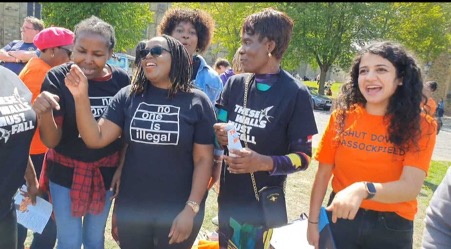
These Walls Must Fall campaigners with Roza Salih in Durham campaigning against the new immigration detention centre in Derwentside.
Navigating all the intersections of her identities as 33 years old woman of colour and refugee in politics, dealing with all the stereotypes, bigotry and other forms of oppression can be very tiring, as she revealed. She suffered racial attacks online and was even stalked.
Roza embraces her Scottish-Kurdish identity and is one of the voices shouting loud in most anti-racism campaigns in Scotland. “I have two cultures, and I embrace both cultures equally. I grew up in Scotland and feel I’m Scottish, but I also cherish my background as a Kurdish woman.
“…both of my cultures and identities are very similar, in so many ways; both of my countries fight for democracy, fight for peace, fight for the right of its people for self-determination.”
As a Kurdish woman, I know how people fight for freedom and democracy back home. For me, both of my cultures and identities are very similar in so many ways; both of my countries battle for democracy, fight for peace, fight for the right of its people for self-determination.”
Roza hopes to inspire a new generation of migrant communities in Politics as she believes representation matters. Still, she is aware that having only people of colour from privileged backgrounds in positions of power would not bring changes for marginalised communities.
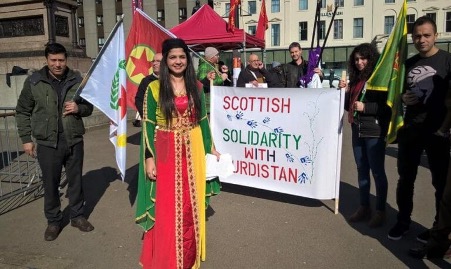
Roza Salih in Kurdish dress at an anti-racist rally in Glasgow. Image source
“Suella Braverman, the Home Secretary, does not represent women of colour or people who have experienced migration. As a politician, I think it’s important that people hold positions of power that reflect our society. I did not see these people making a difference to our country or asylum seekers or refugees because they do not represent our communities.
They represent the rich people who have been fortunate and do not understand what a working person is or people who have struggled through life.
It’s tough for me when she says things like she says. Why are you being so cruel? What have these people done to you?
I think this is very dangerous. She’s creating this kind of hate towards people of different backgrounds. Hate is never the way forward.
I think this is the problem of the Tories’ government and policies. They won’t make any difference to society because it’s based on laws and hate towards people.”

After becoming a councillor in Scotland and one year in this position, being selected one of the most influential women of 2022 by BBC, what’s next for Roza Salih?
“To be honest with you, I feel like I have accomplished a lot. It’s very early to say I will be an MP or MSP. I’m enjoying right now being a councillor. I’m trying to do as much as I can to help people. Whoever needs my help or wants me to highlight an issue that no one is speaking about it, I’m there to represent, to help, to support, as much as I can whatever and how I can.”

